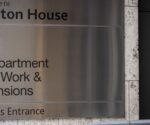Fears millions of workers could pay more tax in Labour Budget | Personal Finance | Finance
As speculation grows over a potential Income Tax rise in the Budget, we examine what this could mean for millions of workers nationwide. Sir Keir Starmer this week refused to rule out whether tax increases were being planned, in what would represent a significant departure from Labour’s manifesto commitments.
During last year’s General Election campaign, the party pledged “not to increase taxes on working people” including Income Tax and National Insurance. When pressed by Conservative leader Kemi Badenoch at Prime Minister’s Questions on whether this commitment remained in place, the PM avoided giving a direct response, reports the Mirror.
Instead, Sir Keir said: “I’m glad that the Leader of the Opposition is now finally talking about the economy. I can update the House: retail sales are higher than expected, inflation is lower than expected, growth has been upgraded this year, and the UK stock market is at an all time high.
“The Budget is on the November 26, and we will lay out our plans, but I can tell the House now that we will build a stronger economy, we will cut NHS waiting lists and deliver a better future for our country.”
The PM insisted that no Government reveals its plans ahead of the Budget, which is scheduled for November 26. This follows reports suggesting Chancellor Rachel Reeves is considering an Income Tax increase to address a £30 billion funding shortfall.
How does Income Tax work?
Everyone is entitled to a personal allowance, which is a predetermined amount you can earn before you begin paying Income Tax. The current rate is set at £12,570 per tax year and has remained frozen at this level since the 2021/22 tax year.
At present, you pay the basic 20% rate of Income Tax when your earnings exceed £12,570, then the higher rate of 40% income tax applies on earnings above £50,270. An additional rate of 45% is levied when your earnings surpass £125,140. The rate of Income Tax you pay is determined by your income bracket.
Will there be an increase in Income Tax in the Budget?
There are rumours that the Chancellor is considering adding 1p to the basic rate of Income Tax. A 1p increase in the basic rate of Income Tax could potentially generate an estimated £8 billion for the Treasury. However, this is merely speculation at this point, and nothing has been officially confirmed.
We will only know for certain if any changes to Income Tax are being implemented once the Budget is announced.
How much more Income Tax could I end up paying?
This entirely depends on your earnings. Recent analysis by AJ Bell indicates that someone earning the average UK income of £35,000 a year would see their annual tax bill rise from £4,486 to £4,710 if an extra 1p in Income Tax is introduced. A person earning £20,000 annually could see their yearly tax bill leap from £1,486 to £1,560, while someone on a £50,000 salary might witness their tax bill increase from £7,486 to £7,860.
Rachel Vahey, AJ Bell’s head of public policy, commented: “Reports suggest that the chancellor is considering an increase in income tax by 1p across the board. For someone earning £35,000 a year, roughly the average income of a UK adult, an extra 1p on income tax would see their annual bill rise from £4,486 to £4,710 – an increase well in excess of £200.”
How to reduce your tax bill
One way to slash your tax bill is to check if your employer offers a salary sacrifice scheme, advises Sarah Coles, Hargreaves Lansdown’s head of personal finance.
Salary sacrifice involves agreeing to give up part of your pre-tax salary in exchange for a non-cash benefit, such as pension contributions or childcare vouchers. The idea is that by giving up a portion of your pre-tax salary, the amount of your pay that is taxable is reduced. In some cases, your take-home pay might actually go up.
Sarah explained: “In some cases, the government will let you give up a portion of your salary, and spend it on certain things free of tax and in some cases National Insurance. This includes pensions.”
You could potentially reduce your tax burden if you’re wed by taking advantage of the marriage tax allowance. Nevertheless, this hinges on what each partner earns.
Sarah outlined: “If one spouse is a non-taxpayer and the other is a basic rate taxpayer, the marriage allowance lets the non-taxpayer give £1,260 of their personal allowance to their spouse, to cut their tax bill.”









